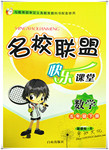题目内容
In this age of Internet chat, video games and reality television, there is no shortage of mindless activities to keep a child occupied. Yet despite the competition, my 8-year-old daughter Rebecca wants to spend her leisure time writing short stories. She wants to enter one of her stories into a writing contest, a competition which she won last year.
As a writer, I know about winning contests – and about losing them. I know what it is like to work hard on a story only to receive a rejection letter from the publisher. I also know the pressure of trying to live up to a reputation created by previous victories. What if she doesn’t win the contest again? That’s the strange thing about being a parent. So many of our own past scars and destroyed hopes can resurface in our children.
A revelation (启示) came last week when I asked her, “Don’t you want to win again?” “No,” she replied, “I just want to tell the story of an angel going to first grade.”
I had just spent weeks correcting her stories as she spontaneously (自发地) told them. Telling myself that I was merely an experienced writer guiding the young writer across the hall, I offered suggestions for characters, conflicts and endings for her tales. The story about a fearful angel starting first grade was quickly “guided” by me into the tale of a little girl with a wild imagination taking her first music lesson. I had turned her contest into my contest without even realizing it.
Staying back and giving kids space to grow is not as easy as it looks. Because I know very little about farm animals who use tools or angels who go to first grade, I had to accept that I was co-opting my daughter’s experience.
While stepping back was difficult for me, it was certainly a good first step that I will quickly follow with more steps, putting myself far enough away to give her room but close enough to help if asked. All the while I will be reminding myself that children need room to experiment, grow and find their own voices.
1.What do we learn from the first paragraph?
A. Now many amusements compete for children’s time.
B. Children have lots of fun doing mindless activities.
C. Rebecca is much too busy to enjoy her leisure time.
D. Rebecca often go online for her writing materials.
2.What did the author say about her own writing experience?
A. She was constantly under pressure of writing more.
B. Most of her stories had been rejected by publishers.
C. She didn’t quite live up to her reputation as a writer.
D. Her road to success was full of pain and frustrations.
3.The underlined word “resurface” in Paragraph 2 probably means “______”.
A. recycle B. reappear C. reconsider D. reunite
4.Why did Rebecca want to enter this year’s writing contest?
A. She was confident about her talent in writing.
B. She was sure of winning with her mother’s help.
C. She wanted to share her stories with readers.
D. She had won a prize in the previous contest.
5.The author took great pains to improve her daughter’s stories because _______.
A. she wanted to help Rebecca realize her dreams of becoming a writer
B. she was afraid Rebecca’s imagination might run wild while writing
C. she did not want to disappoint Rebecca who needed her help so much
D. she believed she had the knowledge and experience to offer guidance
6.What’s the author’s advice for parents?
A. Children should be given every chance to voice their opinions.
B. Parents should keep an eye on the activities their kids engage in.
C. Children should be allowed freedom to grow through experience.
D. A writing career, though attractive, is not for every child to pursue.
1.A
2.D
3.B
4.C
5.D
6.C
【解析】
试题分析:本文讲述了自己的女儿参加一项写作比赛的故事,以及其中的一项相关情况介绍
1.A 推理判断题。根据第一段提到In this age of Internet chat, video games and reality television, there is no shortage of mindless activities to keep a child occupied可知在这个(拥有)网络聊天,电子游戏和电视的时代,并不缺乏/有的是不需要太多智力的活动来供孩子消遣,故选A项。
2.D 细节理解题。根据第二段提到As a writer, I know about winning contests – and about losing them. I know what it is like to work hard on a story only to receive a rejection letter from the publisher.可知作为一个作家,我知道赢得和失去他们是什么感觉,努力很久就结果收到出版商的拒绝,故选D项。
3.B 猜测词意。根据第二段提到What if she doesn’t win the contest again? That’s the strange thing about being a parent. So many of our own past scars and destroyed hopes can resurface in our children倘若她没有赢得比赛怎么办?作为父母,这是件很奇怪的事情,因为许多过去的伤痛和伤害不要在孩子身上出现,故选B项。
4.C推理判断题。根据第三段提到A revelation (启示) came last week when I asked her, “Don’t you want to win again?” “No,” she replied, “I just want to tell the story of an angel going to first grade可知她不想获奖只想把天使的故事讲好,故选C项。
5.D 推理判断题。根据第四段提到I had just spent weeks correcting her stories as she spontaneously (自发地) told them. Telling myself that I was merely an experienced writer guiding the young writer across the hall, I offered suggestions for characters, conflicts and endings for her tales.可知我花很多的时间帮助她,告诉自己我是个有经验的作家,可以指导年轻的作家,故选D项。
6.6】C 推理判断题。根据最后一段提到All the while I will be reminding myself that children need room to experiment, grow and find their own voices可知孩子们需要空间去成长,找到自己想法,故选C项。
考点:日常生活类阅读。

 名校联盟快乐课堂系列答案
名校联盟快乐课堂系列答案每年高考后,高考状元被“热炒”。他们被各种采访和社会活动所包围。对此现象,有
些人表示支持,有些人表示反对。请你结合下表,围绕“Should we give more attention to
Top-rated college entrance exam takers?”这一话题写一篇英语短文来介绍这一现象并给出自己的看法。
支持者认为 | 1. 可以促进社会对教育的重视 |
2. 可以为广大学子树立良好的榜样 | |
反对者认为 | 1. 过度的关注对状元本人有害 |
2. 高分不一定高能 |
注意:1. 词数120左右
2. 可适当发挥,以使行文连贯;
3. 开头已给出,不计人总词数。
Every year after the college entrance exam,the top—rated exam takers will attract wide attention from all over the country.